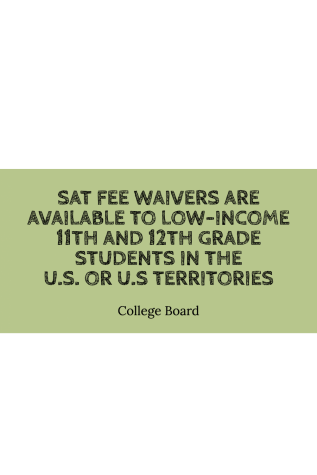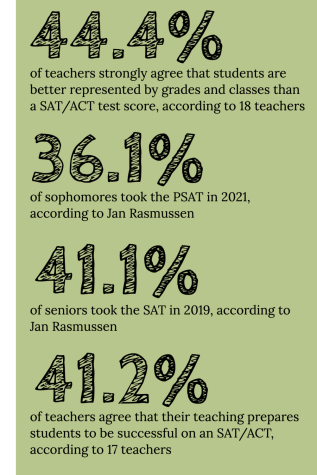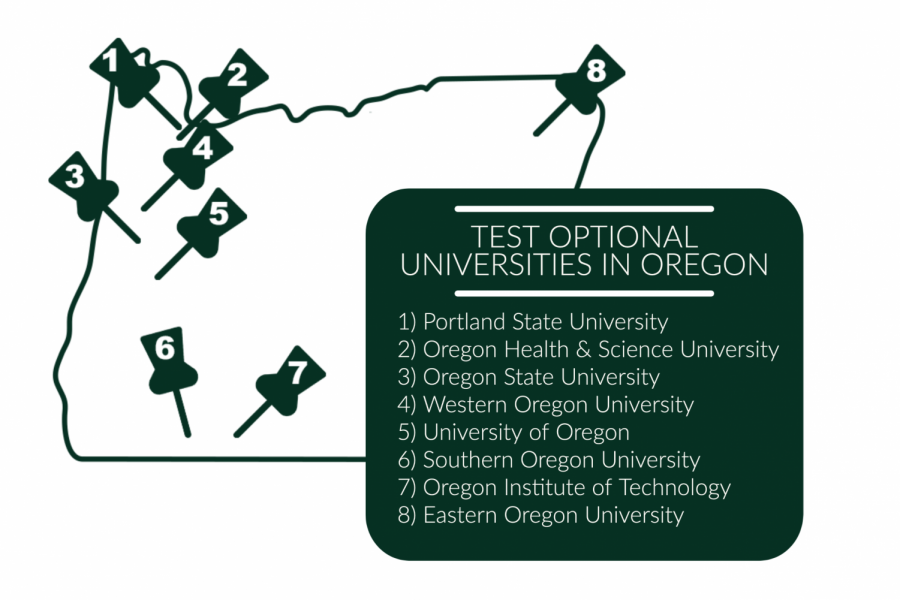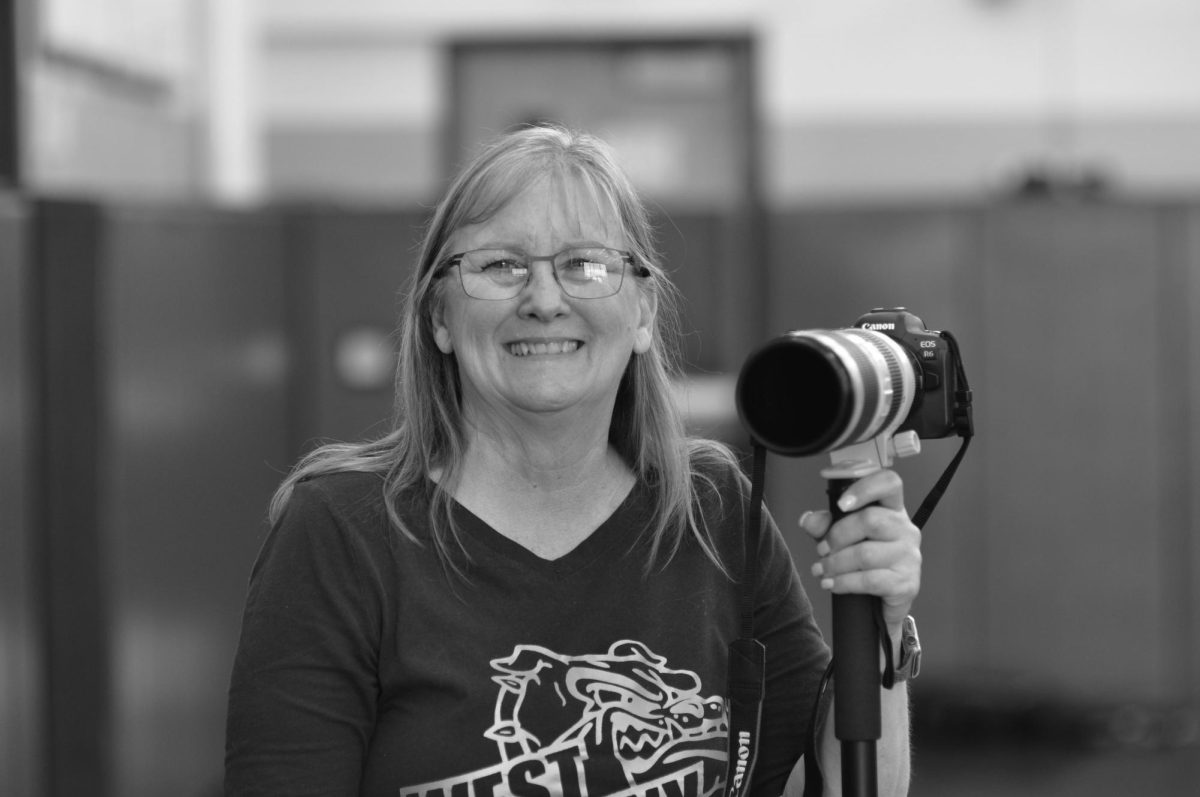Senior Megumi Ludlow was tight on emotions, saying that she was “very stressed” preparing to take the SAT and ACT, spending hours preparing out of a workbook before taking these tests last year. However, there’s been a growing movement across the nation, including in Oregon, where eight universities have decided to permanently go optional on requiring tests such as the SAT and ACT for college admissions, according to an article published on Oregon State University’s website.
Amanda Price, an admissions evaluator for OSU, said, “SAT and ACT scores, if submitted, will be considered along with GPA, classes taken, the essay, personal statement, and extracurricular activities,” saying that submitting scores will only help you in the admission process.
Among students and staff, the change has been seen mostly as a positive. Junior counselor and test coordinator Jan Rasmussen believes this a better way to represent students.
“I totally agree with the movement of going optional. One day in one test doesn’t always totally represent who that student is … Grades and the classes you take are way more representative of what a student can do,” Rasmussen said.
Senior Bella Hoffert-Hay has similar feelings about what four years of high school shows about her and her classmates. “The kids of today, they’re very busy … I think my grades and my activities show a lot more about me than just a score.”
As a student, Hoffert-Hay feels that though standardized tests pose barriers, students should still be expected to meet a standard. “I’m really good at reading and writing, and I’m just bad at math,” Hoffert-Hay said.
English teacher Blain Willard hopes that the elimination of these obstacles takes some of the burden off getting a higher education.

“If we see test prep and test scores as a barrier that’s preventing uneducated or low income households from entering college, then with the removal of that barrier, we would hope some people access that,” said Willard.
According to a statement by the Vice Provost for Enrollment Management of OSU, there’s been a shift toward optional submission because of “issues of equity and justice in the use of them (standardized tests) in the admissions process.” However, senior Gabriel LaChapelle doesn’t feel that removing them is exactly solving the problem.
A standardized test is as objective of a measurement as you can get. I can’t imagine that would actually reduce bias to get rid of them,” said LaChapelle. “Presumably you’ve got some bit more of a subjective measurement that involves looking at what they’ve done … And if anything, I would think that would introduce more implicit bias.”
 For students like Ludlow and Hoffert-Hay, they were driven by scholarships as a reason to take them. However, the University of Oregon, another college in Oregon that is test optional, said in a statement on their admissions page that scores won’t be “considered in any merit- or need-based awards (scholarships).”
For students like Ludlow and Hoffert-Hay, they were driven by scholarships as a reason to take them. However, the University of Oregon, another college in Oregon that is test optional, said in a statement on their admissions page that scores won’t be “considered in any merit- or need-based awards (scholarships).”
But there’s more reasons than just scholarships to take these tests.
“I encourage people to take these tests because it helps you learn how to test well, so if you’re going to college it can be a useful skill,” said Ludlow.
For students still looking to take these tests, Rasmussen said that most practice resources can be found online through websites such as College Board, but emphasizes that the best way to prepare is being in the classroom.
“We still offer the PSAT to students here at the school so they get their practice,” Rasmussen said. “Our curriculum and our teachers do a great job preparing students for education in general, which prepares them for tests.”
For Willard, he feels he’s doing just that. “I assume that if I’m teaching critical reading skills, and we’re doing a lot with reading and writing that those skills are transferable,” he said. “Hopefully, students are acquiring those skills that will lead them to success.”
Junior Ava Remington felt a range of emotions taking the PSAT. “I was really nervous. I know that it was just for practice, but I still wanted to get a good score on it,” Remington said. “I was happy when it was over.”
As someone who sees students everyday, Willard hopes for a brighter future. “I value intellectual curiosity. I value knowledge and the pursuit of knowledge … I think that every community is going to be healthier under a circumstance where everyone’s educated.”





